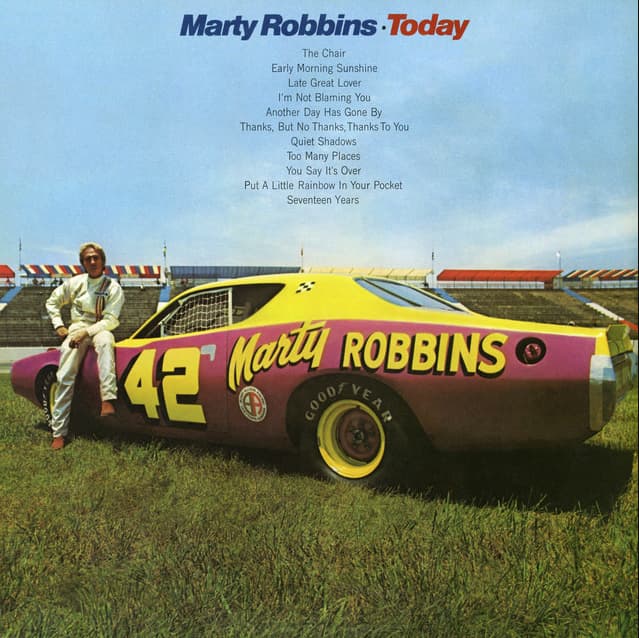
Marty Robbins – “Thanks, But No Thanks, Thanks to You”: A Tale of Heartache and Resilience
In the realm of country music, few voices resonate with the timeless authenticity and emotional depth as profoundly as Marty Robbins. His song “Thanks, But No Thanks, Thanks to You,” released in 1956, is an embodiment of his storytelling prowess and the universal themes of love, loss, and resilience. This poignant piece is nestled within Robbins’ album “The Song of Robbins,” which serves as a testament to his ability to weave narratives that transcend generations.
Upon its release, “Thanks, But No Thanks, Thanks to You” found its place in the hearts of many, echoing a sentiment familiar to those who have navigated the tumultuous waters of relationships. Though it did not claim the top spots on major charts like some of Robbins’ other hits, its impact was nonetheless profound. It served as a subtle reminder that not all memorable songs are chart-toppers; some earn their place through relatability and emotional resonance.
The story behind this song is one wrapped in personal reflection and a deep understanding of human emotions. Marty Robbins, known for his ability to capture the essence of heartache and longing, penned this track during a period when he was exploring the nuances of personal relationships and the bittersweet nature of love. The lyrics are a heartfelt admission of gratitude mixed with sorrow—a thank you for the memories intertwined with a farewell to the pain.
At its core, “Thanks, But No Thanks, Thanks to You” is a narrative about moving on. It speaks to anyone who has had to say goodbye while still cherishing the good times shared. The clever juxtaposition in the title itself—a polite refusal followed by an acknowledgment—encapsulates the complex emotions that often accompany farewells. Robbins’ delivery is marked by his signature smooth yet emotive vocal style, which adds layers to the lyrical content, making each word resonate deeply with the listener.
For many older listeners, this song evokes memories of dances in dimly lit rooms and long drives under starlit skies, where Robbins’ voice provided comfort through car radios. His music often served as the soundtrack to pivotal moments in their lives—first loves, heartbreaks, and everything in between. There’s a nostalgic quality to his work that acts as a bridge between past and present, allowing listeners to reflect on their own journeys while appreciating the artistry involved.
As we delve into the fabric of “Thanks, But No Thanks, Thanks to You,” we are reminded of Marty Robbins’ remarkable ability to craft songs that speak directly to the soul. His work transcends mere entertainment; it is an exploration of human emotion and experience. This song stands as a testament to his legacy—a legacy built on an unwavering commitment to authenticity and an unparalleled understanding of the human heart.
In conclusion, while “Thanks, But No Thanks, Thanks to You” may not have topped the charts upon its release, its enduring appeal lies in its relatability and emotional depth. For those who lived through its era or discovered it later in life, it remains a cherished piece of musical history—a reminder of love’s complexities and the resilience found in moving forward. As with much of Marty Robbins’ work, this song continues to resonate with those who seek solace and understanding in music’s embrace.